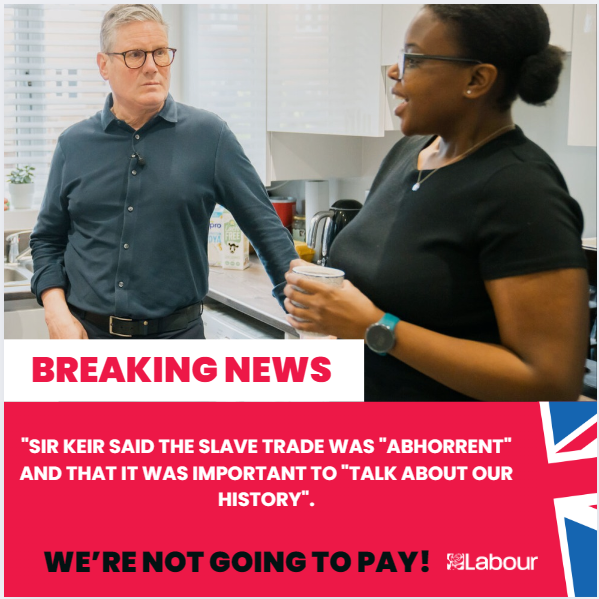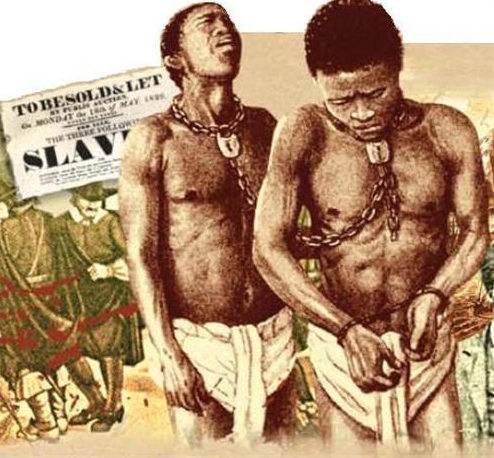The Caribbean’s call for reparations is more than a demand for monetary compensation; it’s a profound appeal for justice and historical reckoning.
At the heart of the movement, championed by the CARICOM Reparations Commission, consists of 20 countries, of which 15 are actual member states lies the push for the UK and other European nations to address the economic and social damages inflicted by centuries of enslavement, exploitation, and colonial rule.

Caribbean Reparations Commission
“Reparations justice is not only about financial compensation but about truth, healing, and the righting of historical wrongs for future generations.”
For the Caribbean, these legacies have left a deep and lasting impact on their societies—widening disparities, stifling economic growth, and creating systemic social issues that persist today.
This demand isn’t solely about addressing past grievances; it’s about building a future where Caribbean nations can thrive without the burdens of colonial legacies.
Mia Mottley, Prime Minister of Barbados
“For us to move forward, we must be able to reckon with the past and repair the damage that continues to affect generations of Caribbean people.”
The UK, which was heavily involved in the transatlantic slave trade and benefited enormously from the labour and resources extracted from the Caribbean, finds itself at the centre of this call for reparations.
Advocates argue that Britain’s wealth was, in part, built on the backs of enslaved Caribbean’s and Africans, thus, the UK has a moral obligation to support the Caribbean’s development through reparative justice.
Yet, the British Government has largely refrained from engaging in any formal reparations discussion, citing concerns about the complexities of historical accountability and the economic scale of such measures.
Nonetheless, the UK’s acknowledgment of its colonial history and involvement in reparative justice could lead to transformative change.
David Lammy, Foreign Secretary, speaking in Nigeria this week said “It’s not about the transfer of cash, particularly at a time of a cost of living crisis around much of the globe, and certainly in the UK, he further stated “I am the descendent of enslaved people, so I recognise that”
It is clear that the UK has a moral duty to face up to its role in the transatlantic slave trade and address the profound inequalities that stem from that history.
This debate is something that people from the Caribbean want and will have. So the Government of the day will need to think about how to manage this in a profoundly practical and productive way.
Britain’s towns and city and company was, in part, enslaved Caribbean’s
Many UK cities, including Bristol, Liverpool, and Glasgow, owe parts of their wealth to the exploitation of enslaved Caribbean people.
Bristol was a major port for the transatlantic slave trade, dealing in sugar and rum produced on Caribbean plantations. Liverpool’s economy also flourished through trade, with families profiting from enslaved labour.
Glasgow’s “Tobacco Lords” reaped fortunes from Caribbean-grown tobacco, funded by slave labour. Even in London, firms like Lloyd’s of London and banks like the Bank of England were involved, insuring slave voyages. Today, many towns are reflecting on this dark legacy, acknowledging and confronting these histories.
By actively addressing this call—whether through financial reparations, educational initiatives, or collaborative economic development programs—the UK could demonstrate genuine accountability and foster a renewed relationship with the Caribbean.
Such actions could be a powerful statement of historical reckoning, shifting the dynamics of former colonial relationships toward a partnership based on respect and shared progress.
For the Caribbean, it would mean the potential to overcome past injustices and move toward a self-sustained, prosperous future.
Caribbean Voices for Labour has a plan

“Caribbean Voices for Labour” advocates for the UK to address historical injustices related to Caribbean slavery through a comprehensive 5-point plan. What we can do in the UK
The approach is rooted in reparative justice, seeking not only acknowledgment but also meaningful action.
Here’s an outline of the plan:
Possible forms ‘Reparations for Slavery’ could take
- Historical Acknowledgment and Apology: Call for a formal government apology acknowledging the UK’s role in the transatlantic slave trade, its impact on Caribbean communities, and the ongoing legacy of colonial exploitation.
- Educational Reform: Integrate a fuller history of the transatlantic slave trade and the Caribbean’s role into UK school curricula. This includes mandatory learning about colonial history, the brutal realities of slavery, and the contributions of Caribbean people to British society.
- Economic Reparations: Advocate for direct reparations to Caribbean nations, which could take the form of debt relief, financial investments in affected communities, and support for development initiatives to rectify economic disadvantages stemming from colonial exploitation.
- Cultural and Institutional Recognition: Support for memorials, museums, and public spaces that honour the history and contributions of Caribbean communities in the UK. Encourage institutions with historic ties to slavery, like banks and universities, to make transparent efforts toward acknowledgment and restitution.
- Ongoing Support and Investment: Establish long-term initiatives to support Caribbean communities in the UK, including grants for education, healthcare, and housing, which address systemic inequalities rooted in historical injustices.
This plan calls for both Government and Institutional commitment to repair the legacies of slavery, creating pathways for genuine acknowledgment, accountability, and healing.


Although Sir Keir Starmer stated that reparatory justice would not be on the agenda at the recently held Commonwealth Heads of Government leaders meeting last month.
The issue dominated the event, as the Commonwealth leaders challenged the Prime Minister’s stance and pushed for a “meaningful conversation” on the matter.
“Sir Keir, said the slave trade was “abhorrent” and that it was important to “talk about our history”.
Share on Social Media
SOCIAL MEDIA

Here is an exciting opportunity for young Montserratians in the UK to represent Montserrat at the upcoming UK Youth Parliament sitting, which will take place on Friday, 28th February 2025 in the House of Commons.
The Monserrat UK representatives are inviting applications from young people aged 11-18 to deliver a 2-minute speech during a special session dedicated to Overseas Territories. This year's topic is: "Education and Learning: School/College and Access to University and Apprenticeships."
The successful young person will also have the opportunity to participate in the UK Overseas Territories Youth Summit on Thursday, 27th February 2025.
Please find attached the flyer with full details, including how to apply and key deadlines. This is a unique opportunity to make their voices heard and represent Montserrat on an international stage
... See MoreSee Less
- likes 0
- Comments: 0
- Shares: 0
0 CommentsComment on Facebook

🌟 Merry Christmas from Caribbean Voices for Labour! 🌟
As the year comes to a close, we want to take a moment to thank each and every one of you for your incredible support. Together, we made our November launch an unforgettable success, showcasing the power of community, unity, and a shared vision for a brighter future.
As we look ahead to 2025, we are more determined than ever to champion the values of fairness, opportunity, and inclusion that underpin CVFL. With your continued support, we will ensure Caribbean voices remain at the heart of shaping this vision.
This Christmas, let us celebrate the strength of our community and the hope we carry into the New Year. Wishing you and your loved ones a season filled with joy, peace, and love.
Here’s to 2025 and the journey ahead!
🎄❤️ #CaribbeanVoicesForLabour #TogetherWeCan #MerryChristmas
... See MoreSee Less
0 CommentsComment on Facebook
KEEP UPDATED


GET IN TOUCH
At Caribbean Voices for Labour, we are dedicated to amplifying the voices of the Caribbean community within the UK Labour movement. Whether you’re looking to get involved, have a question, or want to learn more about our initiatives, we’re here to help.


